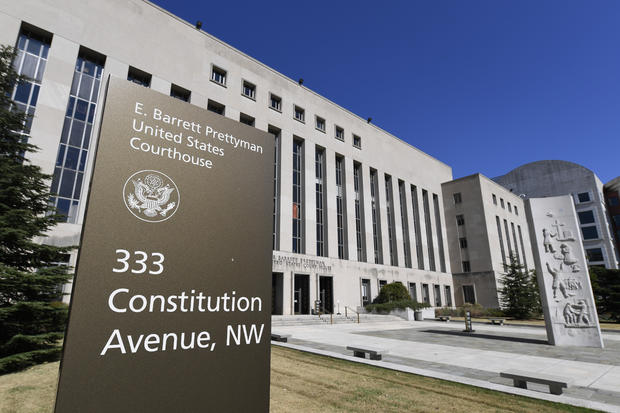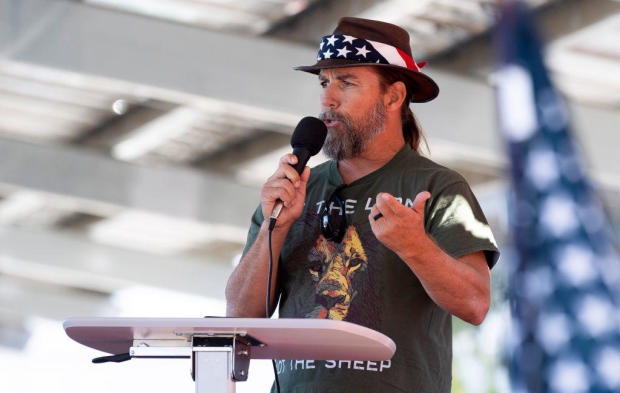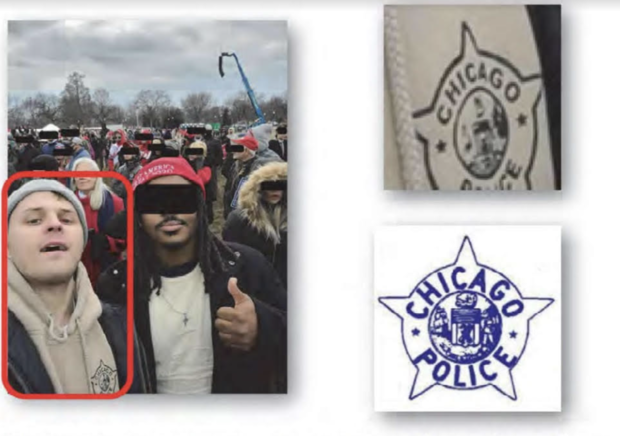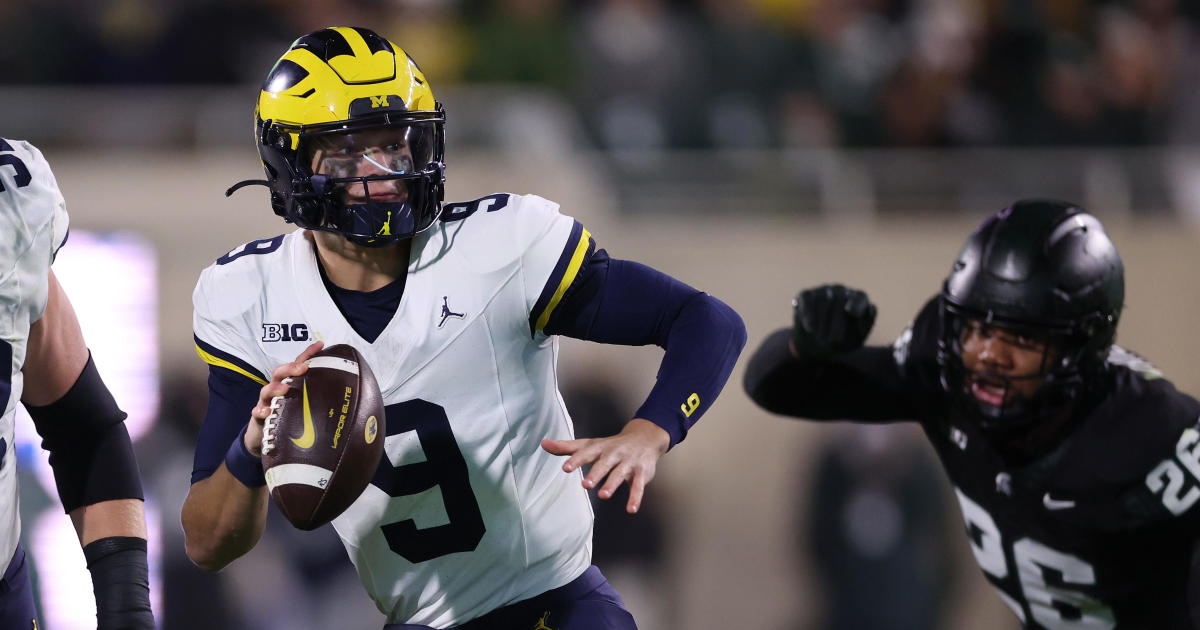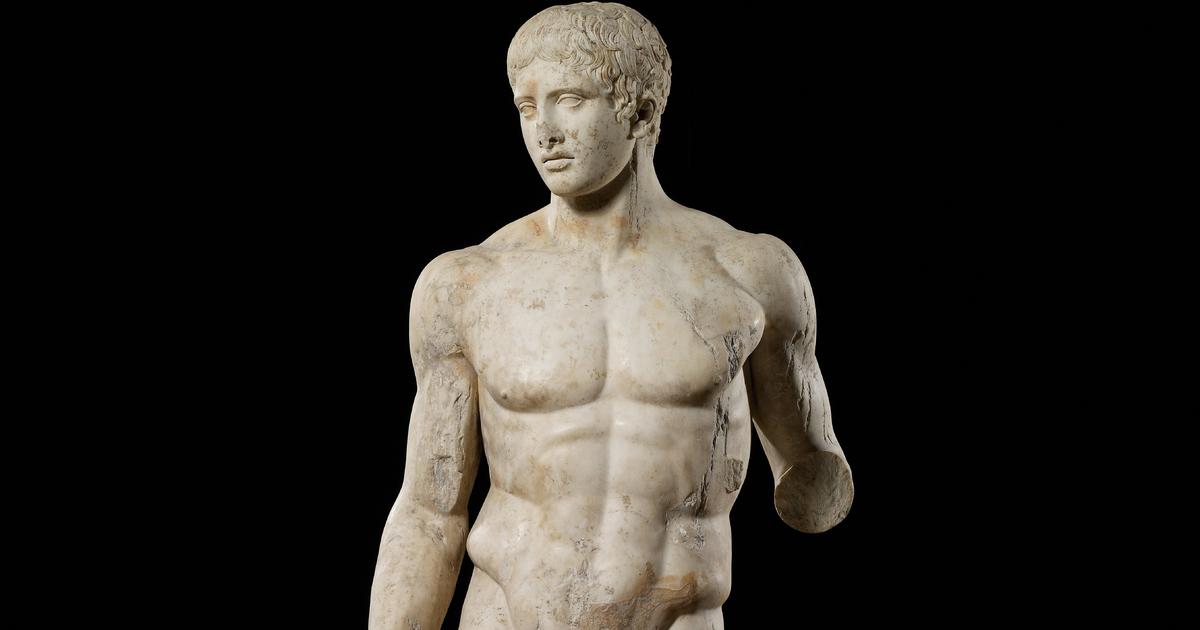How judges in D.C. federal court are increasingly pushing back against Jan. 6 conspiracy theories
Washington — In a Republican presidential primary season that has seen former President Donald Trump and other GOP leaders refer to Jan. 6 defendants as "hostages" and openly promote conspiracy theories about the attack on the Capitol, one institution has been at the forefront of countering those baseless claims: the federal court in Washington, D.C.
In a growing number of cases, judges in the U.S. District Court for the District of Columbia are using their platform to swat down conspiracy theories perpetuated by some Jan. 6 defendants and their supporters.
Several hearings and exchanges witnessed by CBS News over the past two months illustrate how judges are still confronting false claims about what happened on Jan. 6, 2021, and how they have responded to defendants and political figures who continue to perpetuate falsehoods about the attack.
Some of the judges, who share responsibility and oversight of more than 1,200 Capitol riot prosecutions, have ratcheted up their denunciations of efforts to rewrite the history of the attack on the Capitol, just as Trump campaigns to return to the White House.
"That is all preposterous"
In early January, Trump said he considered the defendants imprisoned for their roles in the attack on the Capitol "hostages" and openly talked about offering them pardons. GOP Rep. Elise Stefanik of New York, a member of House Republican leadership, appeared on a Sunday morning talk show and echoed those comments.
"I have concerns about the treatment of Jan. 6 hostages," Stefanik told "Meet the Press." "I believe that we're seeing the weaponization of the federal government against not just President Trump, but we're seeing it against conservatives."
At a sentencing hearing for Capitol siege defendant James Little two weeks later, Judge Royce Lamberth, one of the most senior judges on the district court in D.C., uncorked a scathing rebuke of the falsehoods about Jan. 6 and those who were involved.
Little is a truck driver from North Carolina who was at the Capitol on Jan. 6 and pleaded guilty to a misdemeanor charge of unlawful picketing and parading. The Justice Department said he cited conspiracy theories about Jan. 6 during an interview with FBI agents in 2021: "[Little] blamed D.C. and Capitol Police for antagonizing the crowd, blamed supporters of Antifa and Black Lives Matter for leading supporters of the former President to commit violence and stated that he believes a civil war between Americans of differing political affiliations will take place because the former President won the popular vote.""
Lamberth, who was appointed to the court in 1987 by President Ronald Reagan, listened as Little and his attorney sought a lenient sentence. "You don't have to worry about me being part of any more J6-type things," Little told him.
After a brief recess, Lamberth returned to the bench and seemed to respond to Trump and Stefanik's comments: "The Court is accustomed to defendants who refuse to accept that they did anything wrong. But in my 37 years on the bench, I cannot recall a time when such meritless justifications of criminal activity have gone mainstream."
The judge continued: "I have been dismayed to see outright distortions and outright falsehoods creep into the public consciousness. I have been shocked to watch some public figures try to rewrite history, claiming rioters behaved in an orderly fashion like ordinary tourists, or martyrizing convicted Jan. 6 defendants as political prisoners or even, incredibly, hostages. That is all preposterous."
Lamberth said that kind of "destructive, misguided rhetoric" could present "further danger to our country." He sentenced Little to five months in prison, with credit for two months already served.
A stiff sentence
Another case shows the consequences for one defendant who brought their conspiracy theories into the courtroom.
Alan Hostetter is a former police chief from California. On Jan. 6, he attended the rally at the White House Ellipse before walking to the Capitol, carrying a hatchet in his backpack, according to prosecutors. He joined a group who pushed through a line of police officers guarding a lower terrace on the west side of the Capitol. Prosecutors accused him of promoting "war and revolution" and transporting weapons to Washington ahead of Jan. 6.
He was found guilty of several felonies, including conspiracy, last summer. With his own freedom hanging in the balance at his sentencing hearing in December, Hostetter chose to represent himself. It didn't end well for him.
When it was time to ask for mercy from the judge at sentencing, Hostetter unfurled a string of conspiracy theories, just as he had at trial. He claimed the Jan. 6 attack was "an obvious set-up" featuring "crisis actors." He said federal agents were not only responsible for the attack, but that it was "a psy-op" and the "crowning achievement" of wayward federal intelligence and law enforcement officials.
As he made his meandering claims, Lamberth maintained eye contact with Hostetter. When he concluded his remarks, Lamberth adjusted his glasses and responded.
The judge talked about the protections and importance of the First Amendment, but said the First Amendment "doesn't give anybody the right to obstruct Congress or carry weapons into restricted areas."
Lamberth then handed down a uniquely stiff sentence requested by federal prosecutors: More than 11 years in prison, one of the longest issued in any Jan. 6 case so far.
"I can't tell you how much I just hate all of it"
Karol Chwiesiuk was a police officer in Chicago when he joined the mob at the Capitol. At his sentencing on Jan. 24, Judge Ana Reyes criticized rioters who have equated themselves with revolutionaries and America's Founding Fathers.
Looking directly at Chwiesiuk, Reyes said some defendants are misinterpreting history.
"I feel the need to give everyone a certain history lesson. Because there are people who believe and continue to believe that the election was stolen and that it is in the best tradition of our American Founding Fathers to rebel against tyranny," she said.
Reyes continued: "I suggest that you read President Washington's farewell address. Because in it he warned Americans to 'guard against the impostures of pretended patriotism.' And he warned, 'There will always be reasons to distrust the patriotism who in any quarter may endeavor to weaken the bonds of our democratic experiment.'"
Reyes spared Chwiesiuk from serving prison time, sentencing him to probation instead. But in doing so, she emphasized the frustration felt by judges handling Jan. 6 cases. She alluded to the challenges of sentencing defendants who had no criminal record prior to the false election claims spread after the 2020 election.
"I hate this. I hate all of this. I hate having to have these conversations. I hate that these conversations exist. I hate having to talk to two law-abiding individuals in this way," she said. "I can't tell you how much I just hate all of it."
Safeguards against conspiracy theories at trial
The conspiracy theories that persist from Jan. 6 are less likely to spread in front of trial juries in Jan. 6 cases. Less than 25% of Capitol defendants whose cases have closed sought a trial, with the majority instead opting to plead guilty.
The number of defendants who have chosen to testify in their own defense at trial is relatively small. The court's rules insulate jurors from being presented with conspiratorial claims and baseless theories, according to George Washington University law professor Catherine Ross.
"There is no evidence of the baseless claims the Jan. 6 defendants are asserting that would qualify for admission in front of a jury or judge," Ross told CBS News. "Conspiracy theories by definition are rumors — not evidence. The jury cannot consider them. To the extent these baseless claims come in the form of outbursts, they are stricken from the record as a matter of course."
Although CBS News reporters have witnessed a string of defendants who continued to peddle false claims about the 2020 election, those statements were made at sentencing hearings, where defendants have broader flexibility to share their opinions. Sentencing hearings in federal criminal cases are overseen and decided strictly by judges, not juries.
"You're not a victim"
The judges' rebukes aren't limited to Jan. 6 defendants. As Trump has persisted in his claims of being the victim of a political "witch hunt," judges have also rebutted those claims.
Peter Navarro, a former trade adviser in the Trump White House, was convicted last year by a jury of contempt of Congress for defying a subpoena from the House Jan. 6 Select Committee.
At his sentencing hearing on Jan. 25, Navarro echoed some of Trump's unfounded statements. Judge Amit Mehta handed down a four-month prison term, and had some choice words about Navarro's claims.
Facing Navarro in a packed fourth-floor courtroom, Mehta said Navarro was wrong to claim the prosecution was politically motivated "when the evidence is completely to the contrary."
Mehta also criticized Navarro's claim that the case demonstrated a "two-tiered system of justice." The judge noted how Navarro had four defense lawyers at his defense table during the trial and sentencing. "There might be a two-tiered system of justice … but this isn't it," Mehta said
